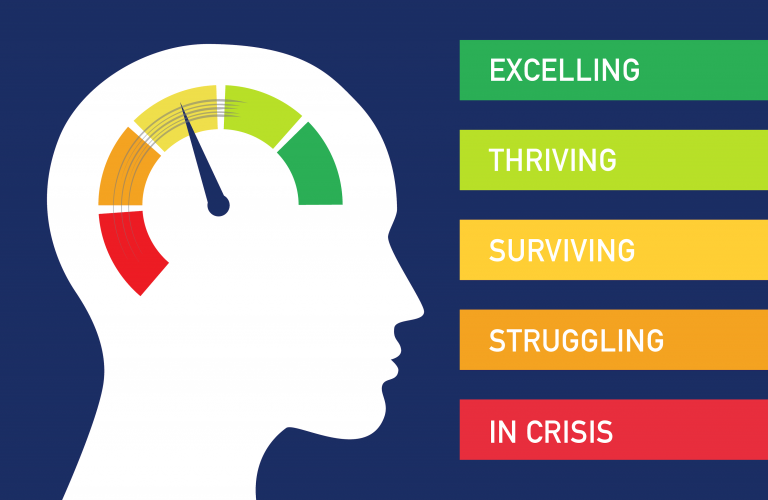In 2015, a survey sent to congregations in the Episcopal Diocese of Texas identified mental health as a top priority for Episcopal Health Foundation (EHF) congregations. Since then, the EHF Congregational Engagement team has been partnering with congregations to promote greater understanding and action around mental health priorities.
While scientists, organizations, and community members all draw on different conceptions of mental health, the work of the Congregational Engagement team relies on a few key concepts:
- Mental health is not static. It changes over time and even from moment to moment. We all experience fluctuations in our mental health.
- Mental health is contextual. It is influenced by our surroundings and interactions as well as differences within our own bodies and brains.
- There are things we all can do to support better mental health for ourselves, our friends and family, and our congregations, and our communities.
Our work this year draws on this mental health continuum:

Individuals will find themselves at different points on this continuum at various points in their lives. We can influence some of the factors that affect our places on the continuum. For example, I may need a good night’s sleep to be at my best. I may also need to limit time with certain individuals or avoid particular activities. Other factors such as racism, exposure to trauma, and biological variations may be beyond our control but clearly can affect our well-being and mental health.
We invite you to reflect on the continuum. With a pen and paper, you can draw your own version of the image above, or you can simply write out your responses to the questions that follow.
First, reflect on your own experiences as a way to become familiar with the continuum.
- As you look across the continuum, can you think back on different times in your life when you would describe your mental health as falling into different zones? What was happening for you during those times?
- Examples:
- “when I was in high school, I’d describe myself as struggling, and then as I got my first job, I was thriving.”
- “I was lonely when I was a teenager and didn’t really see myself as a good student, so I didn’t feel successful. Once I started to work, I realized how capable I was.”
- Examples:
- What can you recall about what has been really helpful to you, when you weren’t doing well?
- Examples:
- “being able to talk to my mom.”
- “having friends check on me and see if I want to go do something together, like watch a movie.”
- Examples:
- What has helped sustain you when you find yourself thriving?
- Examples:
- “getting outside on a regular basis.”
- “cooking a healthy dinner at least a couple times a week.”
- Examples:
And now, consider your congregation and how you collectively promote mental health.
- Which zones do you find that your congregation’s current mental health-related efforts are best positioned to respond to? If your congregation doesn’t have any formal mental health promotion activities right now, what might you be doing without even knowing it or placing an emphasis on it?
- In which zones would you really like to grow your congregation’s efforts and capacities?
- And in which do you find that your congregation isn’t really sure of its role, or perhaps feels overwhelmed?
Given your reflections and your own experiences, how would you like to bring the topic of mental health into conversations and action with other members of your congregation?
In 2023, the Congregational Engagement Team will offer a Mental Health Learning Network Series to support congregations as they promote mental health in their communities. The Learning Network is a next step for Episcopal congregations looking for imaginative ways to connect, deepen strategies for promoting mental health and well-being, and gain experience using virtual meeting platforms to invite meaningful conversation. Learn more and register: https://www.episcopalhealth.org/events/category/learning-opportunities/
